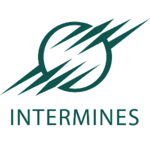Interview with Hélène Dalmont (N2004) , Prematerial and Quality control manager - QHSE Europe / Africa
When she joined Vallourec in 2008, Hélène Dalmont, an engineer who recently graduated from the Ecole des Mines, Nancy, had no idea of the challenges she would have to face.
One thing is for certain, she was eager to enrich her knowledge and take full advantage of the high-level technical environment she was lucky enough to experience at VRCF (Vallourec Research Center France).
Hélène, can you tell us more about your early days at Vallourec ?
At VRCF, I was in charge of steel developments aiming at improving quality performance. Combining theoretical knowledge with experience in the field is key to broadening your range of skills. The job offered me this possibility. In addition to that, six months after my arrival, I was asked to lead a team of R&D technicians which progressively grew, and included engineers and PhDs in metallurgy. I thus jumped straight into a management role.
"Those years were incredibly formative. At 23 years old, you need to be quite humble and learn quickly from your mistakes to gain credibility and succeed in your mission as a manager. I am quite aware how fortunate I was to get these opportunities and to have colleagues who are very supportive to young engineers" comments Hélène.
What about your mission at Vallourec today ?
Since 2014, my mission has been to develop a global vision of our quality performance with steel suppliers (mainly our long-term partner HKM*). We wanted a change in approach, with a view to significantly improve our performance, in particular on non-quality costs. This new position was created in this context.
The first step was a full diagnostic to ensure that the targeted organization would serve all stakeholders.

This teamwork allowed us to develop and implement a plan to address our quality issues without forgetting the supplier's technical constraints. It was an excellent collective effort, for sure!
In addition to this mission, I also managed the major quality risk prevention plan which is now in place.
Changing a long existing model inevitably meets with some reluctance. What were the main difficulties to overcome ?
The main challenge has been to gain the trust of all parties in order to work seamlessly and fairly, in everyone's interest, and to achieve a true partnership-based relationship.
Technical skills can be acquired through personal work and supportive colleagues, but convincing and engaging people for a project, mixing internal teams with various profiles and those of suppliers, not to mention people from different countries, is a tough job. You have so many different perceptions and expectations !
The decision to have a new central position initially raised questions both internally and with the supplier.
"In France, it is usual for young engineers to enrich their experience over time and to consider how they can bring added value at the various stages of their careers. In Germany, technical positions are often reserved for PhDs, i.e. experts. It is not common practice to see a general engineer who manages a continuous improvement plan for raw materials, as I did. Of course there were doubts about my legitimacy and ability to understand the technical issues and constraints", adds Hélène.
We wanted to move from a classic customer-supplier relationship to an actual partnership, looking for performance optimization along the complete value chain, in the interest of business sustainability.
How did you overcome these difficulties ?
It was part of the job to listen to all parties and explain what was at stake, which products or orders were critical, and to make everyone understand the items that needed to be safeguarded. In terms of problem-solving, it was also important to use the right approach and methodology such as DMAIC and 6 Sigma**, as well as our metallurgical expertise.
A cross-cultural seminar, intended to facilitate cooperation between French and German nationals, also helped. All stakeholders became aware of the influence of culture in their interactions. This helped to clear up any misunderstandings and contributed to a strong team spirit.
Finally, everyone understood that the common goal was to achieve optimized production to better serve our customers and common performance.
What do you like most about Vallourec ?
I owe a lot to Vallourec. I have had the opportunity to improve my technical and managerial skills. I appreciate the values and the very supportive management that helps people progress even in difficult times.
“What I enjoy most about my job is working with people from different backgrounds and cultures... And working close to operations. It's very demanding, you have to be reactive, pragmatic and flexible, but I need this, it is so motivating” concludes Hélène.
Hélène will soon be entering the world of OCTG, after her maternity leave. Let us wish her every success in this new challenge !

Commentaires0
Veuillez vous connecter pour lire ou ajouter un commentaire
Articles suggérés


